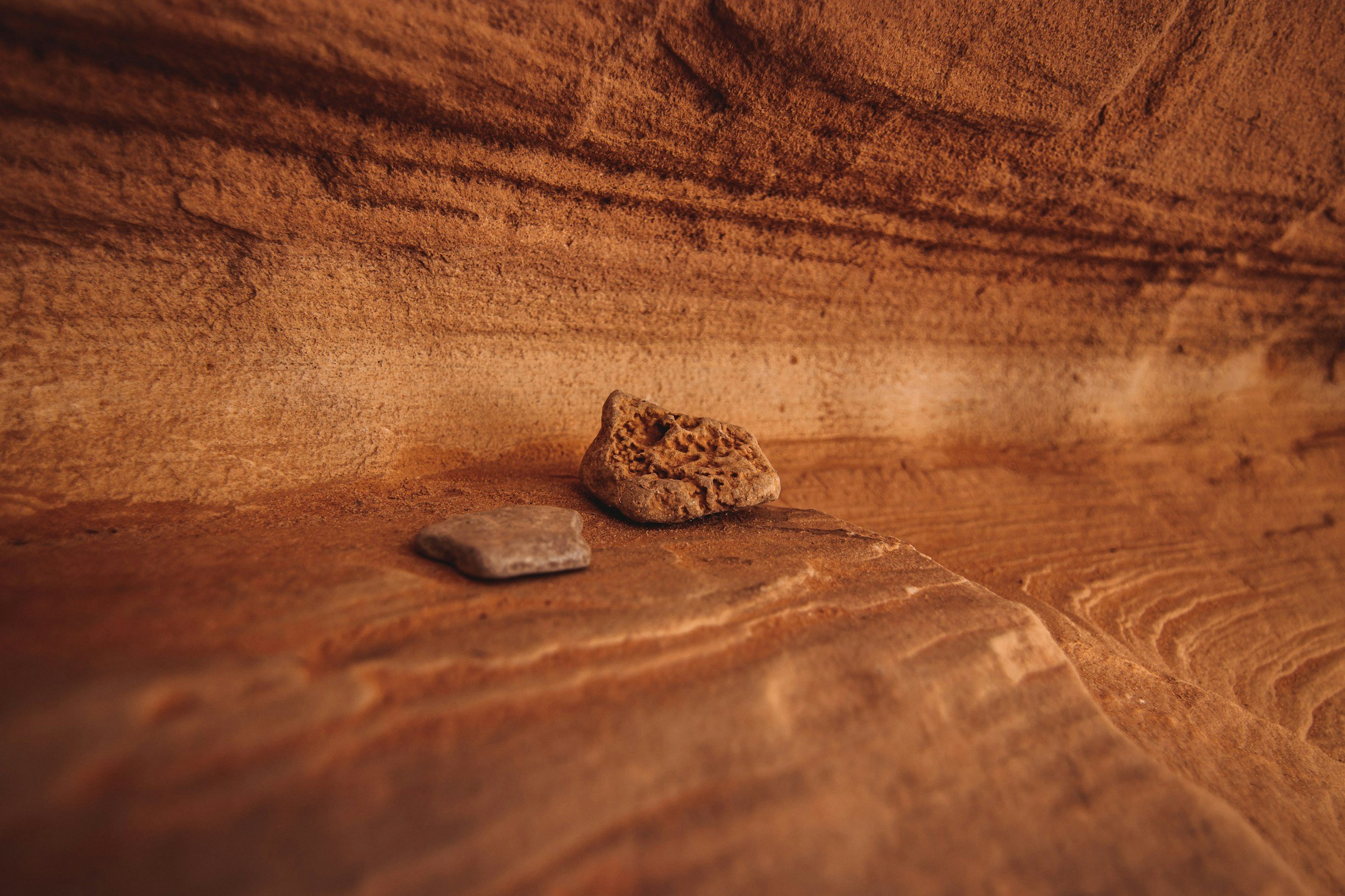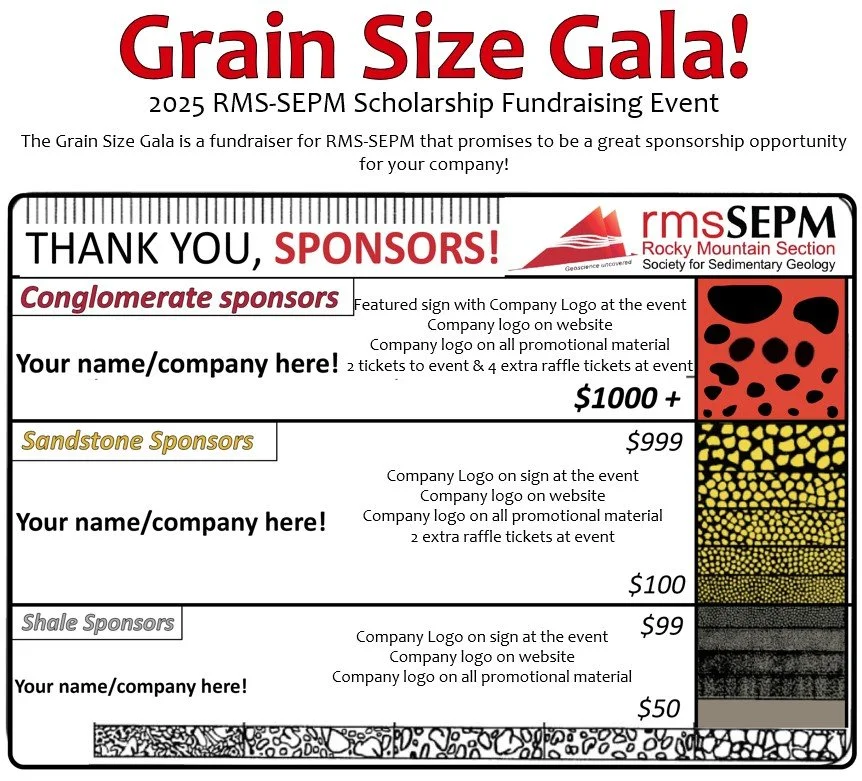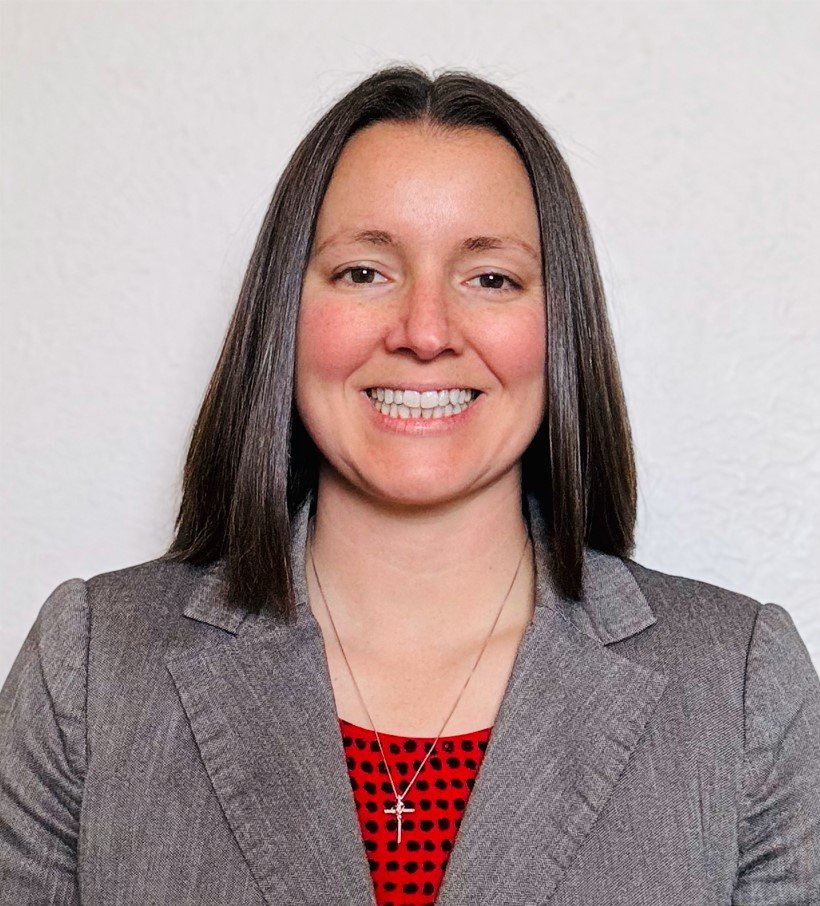
Luncheon Lecture: October 28th-Jane Hearon
Integrated stratigraphic and geochemical analysis of a drill core of the Maastrichtian Lewis Shale in the Eastern Washakie Basin, Wyoming
Authors: Jane Hearon (presenter), Justin Birdwell, and Paul Hackley
Central Energy Resource Science Center at the USGS
Abstract:
The U.S. Geological Survey collected a 601-foot, continuous core of the Maastrichtian Lewis Shale in 2022. The Cow Creek 1-21 core was drilled to assess the source rock potential of multiple, organic-rich flooding surfaces within the Lewis. The core is in the eastern Washakie Basin, ~60 miles southwest of Rawlins, WY. The Lewis, which produces abundant natural gas in Wyoming, was deposited in a regional embayment during the last transgressive/regressive cycle of the Cretaceous Western Interior Seaway (KWIS). The core in this study is unique in that it penetrated 7 organic-rich flooding intervals (F1–F7) and a regional, high gamma ray condensed section at the base of the Lewis, informally known as the Asquith marker. In addition to stratigraphic analysis, a robust geochemical and mineralogical data suite was collected.
Bio:
Jane Hearon is a geologist with the U.S. Geological Survey in Denver, Colorado. She currently conducts regional-scale research and resource assessments on both petroleum systems and geologic hydrogen. Jane has worked in a variety of geologic settings throughout her 15 year career, from sediment-hosted gold deposits to deep-marine depositional systems. Jane's research spans both hard- and soft-rock geology, and she has expertise in reservoir characterization, sedimentology and stratigraphy, mineralogy and core analysis, reservoir quality modeling, and natural resource assessments. She holds degrees from Cornell University (BA) and Colorado School of Mines (MS and PhD).
Registration is open-Click the Dunes to Register!
This is an in-person and online event!
The cost is $30.00 for current members and $40.00 for non-members. Web only Zoom registration is $10.00 ($5.00 for students). Unemployed individuals may sign up for lunch for just $20.00. Students may sign up for lunch for $20.00. Persons who do not wish to have lunch are welcome for a $20.00 fee. Walk-ins may purchase a lunch for the standard fees ($30.00 or $40.00) although quantities are limited. Walk-ins without a lunch are charged a $15.00 fee.
Please submit reservations by 10:00 a.m. the Friday before the talk.
Reservations may be secured online or by e-mail at information@rmssepm.org






















